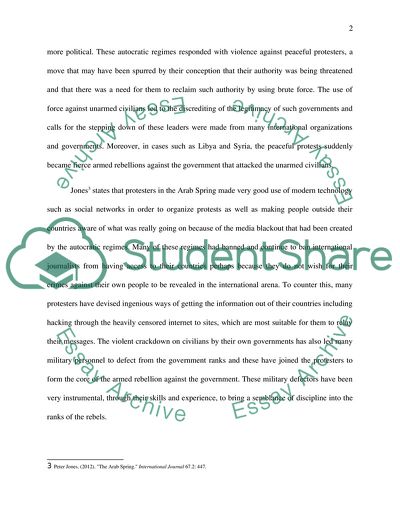Cite this document
(“The Arab Spring Research Paper Example | Topics and Well Written Essays - 2750 words”, n.d.)
The Arab Spring Research Paper Example | Topics and Well Written Essays - 2750 words. Retrieved from https://studentshare.org/history/1613569-the-arab-spring
The Arab Spring Research Paper Example | Topics and Well Written Essays - 2750 words. Retrieved from https://studentshare.org/history/1613569-the-arab-spring
(The Arab Spring Research Paper Example | Topics and Well Written Essays - 2750 Words)
The Arab Spring Research Paper Example | Topics and Well Written Essays - 2750 Words. https://studentshare.org/history/1613569-the-arab-spring.
The Arab Spring Research Paper Example | Topics and Well Written Essays - 2750 Words. https://studentshare.org/history/1613569-the-arab-spring.
“The Arab Spring Research Paper Example | Topics and Well Written Essays - 2750 Words”, n.d. https://studentshare.org/history/1613569-the-arab-spring.


